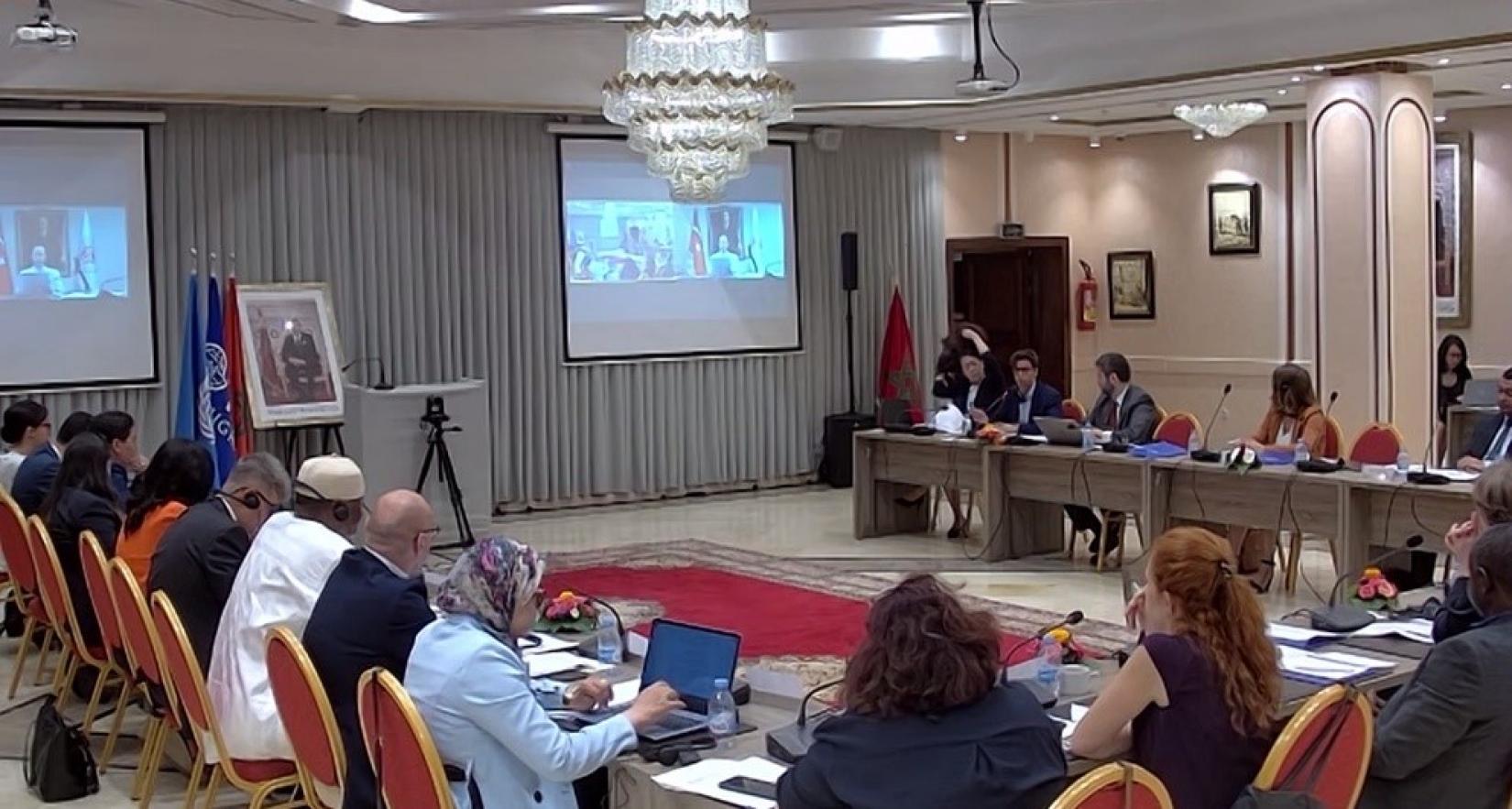Serbia participated in the United Nations Interregional Conference on Labor Migration
11 July 2023
Serbia participated in the United Nations Interregional Conference on Labor Migration, held in Rabat, Morocco on 11-12 July, 2023 within the scope of GCM Talks organized by the International Organization for Migration (IOM). Some of the main topics discussed were options and pathways for regular migration to facilitate labor mobility and decent work taking into account demographic and labor market realities, as labor mobility plays an important role in finding long-term solutions for countries of origin and country of destination.

The meeting on “Good Practices and Challenges in Bilateral Labor Migration Agreements, Including Skill Mobility Partnerships” was held in Rabat, Morocco on 11-12 July, 2023 within the scope of GCM Talks organized by the International Organization for Migration (IOM). This event was attended by member states of the International Organization for Migration (IOM) and the United Nations Migration Network such as Germany, Egypt, Spain, Georgia, Mali, Morocco, Niger, Portugal, Serbia, Tunisia, Chad and Turkey. Republic of Serbia was represented by advisor at Ministry Of Labor, Employment, Veterans And Social Affairs, from Department For Labor And Employment.
Namely, the Interregional Conference presents a combination of global and regional consultations and exchange of experiences in order to support member states from the United Nations system that are interested in continuing discussions on how to implement the Global Compact for Safe, Orderly and Regular Migration (GCM), i.e. how to best approach the exchange of good practices and identify challenges and shortcomings related to the implementation of bilateral agreements on labor migration.
This important event also served as a platform for strengthening cooperation, encouraging an inclusive labor market and promoting the full participation of migrant workers in the formal economy in accordance with the goals set by the Global Compact on Migration. States championing the Global Compact for Safe, Orderly and Regular Migration, together with countries with years of experience and expertise in implementing bilateral agreements on labor migration, including partnerships for skills mobility, have engaged in cross-regional consultations and exchange of experiences on how to the best way to implement certain aspects of the GCM.
Among the topics discussed were options and pathways for regular migration to facilitate labor mobility and decent work taking into account demographic and labor market realities, as labor mobility plays an important role in finding long-term solutions for countries of origin and country of destination. It was particularly pointed out that the Republic of Serbia has a long tradition in regulating the legal position of migrant workers and that it takes place through the implementation of bilateral agreements on social security, bilateral agreements on temporary employment and the application of the provisions of the Law on Employment of Foreigners. One of the reasons for the conclusion of a greater number of bilateral agreements is not only the large number of our migrant workers who went to work temporarily in the countries of Western Europe, but also in the very legal nature of those agreements, which lies in the principle of equal treatment of domestic and foreign citizens in terms of conditions for acquisition and use of rights in the field of social security.
The process of amending the Law on the Employment of Foreigners has begun, focusing on the introduction of a single permit for residence and work, the possibility of submitting a single permit via email and from abroad, and the complete digitization of the procedure. The Qualifications Agency plays a key role in recognizing qualifications and deficient occupations in Serbia, providing professional support for foreigners and stateless persons in the process of recognition of foreign qualifications for the purpose of establishing an employment relationship. The country is also developing a methodology for determining skills and occupations in short supply.

